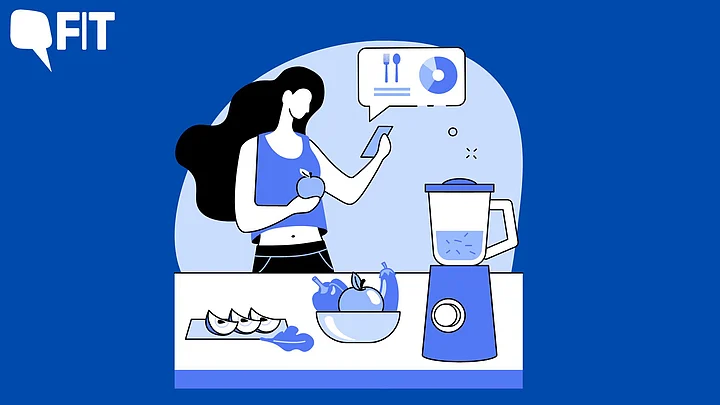There are many weight loss techniques for people to try out, and all of them assure to to reach your ideal benchmark. But not every technique works the same for each one of us.
It is important to follow a balanced died, based on scientific facts and not weight-loss fads. One can be on a calorie deficit diet for as long as possible, it may still not be enough to reach their goal weight.
What are the reasons behind it? We spoke to Kalpana Gupta, Clinical Nutritionist, Max Smart Hospital Saket, and Dr Arun Prasad, Senior Consultant, Bariatric and Robotic Surgeon, Indraprastha Apollo Hospitals, New Delhi, to understand better.
What Does Calorie Deficit Mean?
A calorie deficit is a state in which a person consumes fewer calories than their body requires to maintain its current weight. This means that the body must burn stored energy (fat or muscle) to make up for the difference, resulting in weight loss.
To create a calorie deficit, one can either decrease their calorie intake:
By eating less food
Consuming lower calorie foods
Reducing portion sizes
Increase their calorie expenditure – through exercise or physical activity
"It's important to note that creating too large of a calorie deficit can be unhealthy and potentially harmful. It's generally recommended to aim for a moderate calorie deficit of around 500-750 calories per day for safe and sustainable weight loss."Dr Arun Prasad, Senior Consultant, GI, Bariatric and Robotic Surgeon, Indraprastha Apollo Hospitals, New Delhi.
How Does It Affect Your Body?
Kalpana says: "What you eat on a calorie deficit diet matters a lot. Most of the time people skip their meals to follow calorie deficit, and unknowingly eat the wrong food. This has quite an impact on their body."
When you eat fewer calories than your body requires, your body will begin to burn stored energy (such as fat) to make up the difference. However, if your diet consists primarily of unhealthy, high-calorie, processed foods, you may not be getting the essential nutrients that your body needs.
This can lead to feelings of fatigue, weakness, and other health problems.
"A diet that is rich in whole, nutrient-dense foods such as fruits, vegetables, lean proteins, and healthy fats can provide your body with the nutrients it needs to support overall health and well-being, even when in a calorie deficit," says Dr Arun.
Eating a balanced, nutritious diet can also help to reduce hunger and cravings, which can make it easier to stick to your calorie deficit goals.
Reasons For Being Unable to Lose Weight On Calorie Deficit
There could be several reasons why a person may not be able to lose weight in a calorie deficit. Such as:
Underestimating calorie intake: If a person is not accurately tracking their calorie intake, they may unknowingly consume more calories than they think, which can prevent them from achieving a calorie deficit.
Overestimating calorie expenditure: Similarly, if a person overestimates the number of calories they are burning through exercise or physical activity, they may not be creating as large of a calorie deficit as they think.
Medical conditions or medications: Certain medical conditions or medications can make it more difficult to lose weight, as they can affect metabolism, hormones, or appetite.
Lack of sleep: Poor sleep quality or inadequate sleep can disrupt hormones that regulate appetite and metabolism, making it harder to lose weight.
High-stress levels: Chronic stress can also disrupt hormones and increase appetite, making it harder to stick to a calorie deficit.
Plateau: Sometimes weight loss can plateau, which means a person's body adapts to the calorie deficit and reduces its metabolic rate, making it harder to continue losing weight.
Genetic factors: Genetics can also play a role in weight loss, as some people may have a naturally slower metabolism or a greater tendency to store fat.
What Are the Side Effects?
Fatigue: When you don't consume enough calories, your body may not have enough energy to perform daily tasks, leading to feelings of tiredness and fatigue.
Mood changes: A calorie deficit may lead to irritability, anxiety, and depression, especially if the deficit is severe or prolonged.
Difficulty concentrating: Inadequate calorie intake can also make it harder to concentrate and focus on tasks.
Digestive problems: Some people may experience digestive issues such as constipation, bloating, or diarrhea due to a lack of fiber and other nutrients in the diet.
Weak immune system: Inadequate calorie intake may weaken the immune system, making you more susceptible to infections and illnesses.
Muscle loss: Severely restricting calories can lead to muscle loss, which can make it more challenging to perform physical tasks and exercise.
Nutrient deficiencies: When you consume fewer calories, you may also be consuming fewer nutrients, leading to deficiencies in vitamins and minerals that your body needs to function correctly.
"If you are considering a calorie-restricted diet, it's always best to consult with a healthcare professional or a registered dietitian to ensure that you're meeting your body's nutritional needs," Dr Arun says.
How Can You Achieve Weight-Loss Goals More Effectively?
Here are a few ways through which on can achieve their weight loss goals more effectively:
Create a plan: Plan your meals and snacks in advance and make sure you have healthy food options available. Schedule your workouts or physical activity into your day and stick to it. Eat slowly, savor your food, and pay attention to your hunger and fullness cues.
Hydration: Drink plenty of water to keep yourself hydrated and avoid confusing thirst with hunger.
Incorporate physical activity: Exercise regularly to help boost your metabolism and burn calories.
Get enough sleep: Aim for 7-9 hours of sleep per night as lack of sleep can negatively affect weight loss efforts.
Seek professional help if needed: If you're having difficulty achieving your weight loss goals, consider seeking the help of a registered dietitian or healthcare professional who can provide personalized advice and support.

